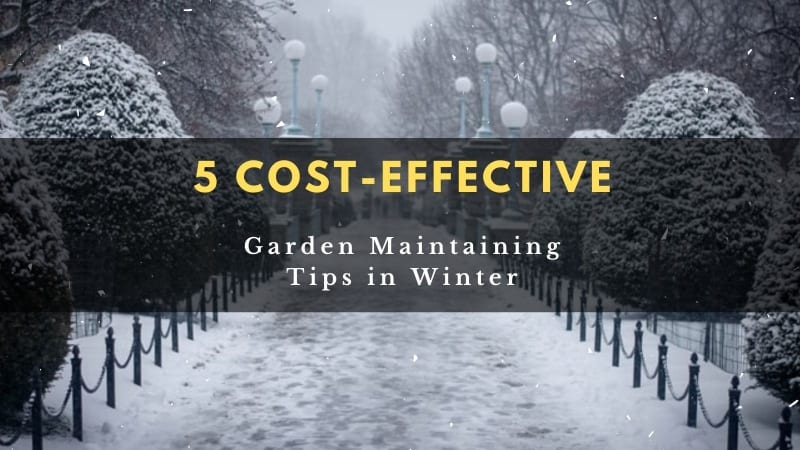
Everyone knows that there are three essential elements that every garden needs are Soil, Water, and sunlight. Most of the time, it is very easy to get all these, but it becomes difficult and challenging in winter. So it’s needed to take care of your garden in winter to keep your plants safe and healthy throughout the season.
Here are five cost-effective garden maintaining tips that can help you to keep your garden healthy during winter.
While adding nutrients and fertilizer to your soil may help produce big blooms and bigger plants, adding too much nutrients can decrease the fertility of your soil and impact your plants’ growth. It’s worth giving your garden a break once in a while. Winter is the perfect time to switch off the high-nitrogen feed into a low nitrogen-one. This process can allow your soil to recalibrate, preparing it for the fruitful spring ahead. You can buy low nitrogen fertilizer easily from any supermarket at a cost-effective price.
The ideal method to maintain your garden thriving through the cold winter season would be to generate a mulch to cover the soil. The mulch can protect it from frosts that are repeated and excessive cold. The best stuff to make mulch are the fallen leaves. You can get it easily from anywhere for free. A layer of leaves is a method for nature to guard itself against the cold. The garden will be kept at a consistent temperature.
Cleaning up infected and dead plants is amongst the best methods to keep your garden healthy in winter. Removing plants will not simply clean it but also prevent the spread of fungi, viruses, pests, and diseases. Reduce spent plants and burying that disease-free finished plants can prevent most garden bugs from spreading in the spring season. Additionally, burying them will improve soil health as they can add organic matter.
Recycle the empty boxes to grow the plants. Recycling the old boxes is a cost-effective way to keep your precious plants safe in the winter. Hang them under the garden shed or diy buildings to protect them from snow, and it also helps in maintaining the temperature of the soil. Some of the plants can easily damage or sometime may be dead because of the cold and snow, so to keep them safe, you can store them in Garden Shed in this way they can stay healthy and unaffected by the winter.
In winter, you should understand how to separate and plant bulbs. Because they might require time before blooming in the spring bulbs, including tulips and daffodils, needs to be implanted early in the winter. These bulbs also need cool temperatures that may speed up their flowering. Once they bloom properly, you can use it to decorate your garden. Buying tulips, daffodils, and other offseason is a cost-effective way to save some expenses.
Use these maintaining tips to keep your garden safe for the next gardening season. These tips will also increase your knowledge about soil, plants, and how to keep them healthy. Enjoy your gardening.
You spend a lot of time in your home, so it’s important to create a…
If you love a modern house vibe, you can find several easy ways to update…
Are you looking to spruce up your home without breaking the bank? Home improvements don’t…
Florida, also known as the Sunshine State, boasts a vibrant real estate market filled with…
A backyard fireplace is the perfect feature to take any outdoor space up a notch.…
The kitchen, often referred to as the heart of a home, is where both meals…